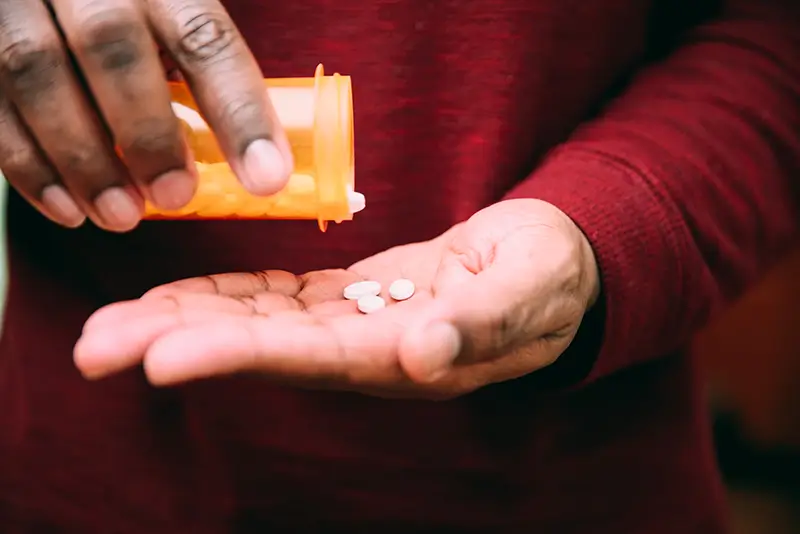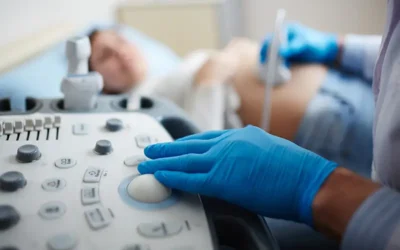The opioid crisis has reached devastating proportions in the U.S., leading the government to declare it a national emergency. Latest data suggest that the number of deaths due to opioid misuse surged during the pandemic. In December 2020, the Centers for Disease Prevention and Control (CDC) reported that over 81,000 drug overdose deaths occurred in the U.S. in the 12 months ending in May 2020, the highest number of overdose deaths ever recorded in a year. As healthcare providers go all out to address the opioid epidemic, partnering with an experienced physician coding company can help them ensure accurate billing and coding of opioid use disorder.
Opioids include prescription pain relievers, heroin, and synthetic chemicals such as fentanyl and fentanyl analogs. Physicians prescribe opioids to treat acute and chronic pain and for cancer treatment, palliative care and end-of-life care. Prescription pain relievers such as oxycodone, hydrocodone, and morphine offer many advantages, but misuse and abuse of these medications comes with serious risks and side effects. They affect various organ systems and impact a large number of body functions. Common side effects include constipation, nausea, dizziness, sedation, clouded thinking, and slowed breathing. Pain relief medicine should be used safely and effectively, but they are highly addictive. According to a report on the leading cause of deaths from injury in the U.S., half of deaths due to drug overdose are related to prescription drugs.
Diagnostic Coding of OUD and Related Complications
Problematic opioid use is referred to as opioid use disorder (OUD). The Diagnostic and Statistical Manual of Mental Disorders (DSM–5) states that diagnosis of OUD requires a “problematic pattern of opioid use leading to clinically significant impairment or distress.” Substance use disorder is reported using ICD-10 codes under the category F11.
There are a complex set of combination ICD-10 codes to describe opioid use and its many indicators, consequences, and associated conditions. Clinicians should have a thorough knowledge of OUDs and their complications. Accurate diagnosis and documentation are necessary to report the circumstances and complications associated with opioid use. According to an ACP Hospitalist report, the following points should be kept in mind when coding OUD and opioid-induced conditions or complications:
- All opioid-induced conditions should be clearly documented.
- The clinical documentation should specify if the complication is opioid induced. ICD-10 states that complications directly due to OUD can be coded as such only if the clinician specifically documents an association between OUD and these conditions. As these conditions also occur due to reasons other than OUD, DSM-5 diagnostic criteria also require that other causes be ruled out before reporting a condition as opioid-induced.
- The DSM-5 diagnostic criteria should be used by the clinician to determine whether a patient has mild, moderate, or severe OUD.
Physicians should also be up-t0-date with ICD-10 coding changes. Several new DSM-5 recommended ICD-10 codes came into effect on October 1, 2020:
F12.13 Cannabis withdrawal, with mild use disorder
F11.13 Opioid withdrawal, with mild use disorder
F13.130 Sedative, hypnotic or anxiolytic withdrawal, uncomplicated, with mild use disorder
F13.131 Sedative, hypnotic or anxiolytic withdrawal, delirium, with mild use disorder
F13.132 Sedative, hypnotic or anxiolytic withdrawal, with perceptual disturbance, with mild use disorder
F13.139 Sedative, hypnotic or anxiolytic withdrawal, unspecified, with mild use disorder
F14.13 Cocaine withdrawal, with mild use disorder
F14.93 Cocaine withdrawal, without use disorder
F15.13 Amphetamine or other stimulant withdrawal, with mild use disorder
F19.130 Other (or unknown) substance withdrawal, uncomplicated, with mild use disorder
F19.131 Other (or unknown) substance withdrawal, delirium, with mild use disorder
F19.132 Other (or unknown) substance withdrawal, with perceptual disturbance, with mild use disorder
F19.139 Other (or unknown) substance withdrawal, unspecified, with mild use disorder
OUD Treatment Services – New Codes in 2021
When it comes to treating OUD, no single approach works for all patients. Support should include access to medical treatment, mental health services, addiction counseling, and other recovery support services and should be tailored to each patient’s needs and preferences (ASAM, 2015). Moreover, continuity of care is critical.
In December 2020, the Centers for Medicare & Medicaid Services (CMS) released coding and billing updates for opioid use disorder (OUD) treatment services. There are new HCPCS Level II G codes G2067–G2080, effective Jan. 1, 2020 to report OUD treatment services such as: overall management, care coordination, Individual and group psychotherapy, substance use counselling, and additional counselling.
G2067 Medication assisted treatment, methadone; weekly bundle including dispensing and/or administration, substance use counseling, individual and group therapy, and toxicology testing, if performed (provision of the services by a medicare-enrolled opioid treatment program)
G2068 Medication assisted treatment, buprenorphine (oral); weekly bundle including dispensing and/or administration, substance use counseling, individual and group therapy, and toxicology testing if performed (provision of the services by a medicare-enrolled opioid treatment program)
G2069 Medication assisted treatment, buprenorphine (injectable); weekly bundle including dispensing and/or administration, substance use counseling, individual and group therapy, and toxicology testing if performed (provision of the services by a medicare-enrolled opioid treatment program)
G2070 Medication assisted treatment, buprenorphine (implant insertion); weekly bundle including dispensing and/or administration, substance use counseling, individual and group therapy, and toxicology testing if performed (provision of the services by a medicare-enrolled opioid treatment program)
G2071 Medication assisted treatment, buprenorphine (implant removal); weekly bundle including dispensing and/or administration, substance use counseling, individual and group therapy, and toxicology testing if performed (provision of the services by a medicare-enrolled opioid treatment program)
G2072 Medication assisted treatment, buprenorphine (implant insertion and removal); weekly bundle including dispensing and/or administration, substance use counseling, individual and group therapy, and toxicology testing if performed (provision of the services by a medicare-enrolled opioid treatment program)
G2073 Medication assisted treatment, naltrexone; weekly bundle including dispensing and/or administration, substance use counseling, individual and group therapy, and toxicology testing if performed (provision of the services by a medicare-enrolled opioid treatment program)
G2074 Medication assisted treatment, weekly bundle not including the drug, including substance use counseling, individual and group therapy, and toxicology testing if performed (provision of the services by a medicare-enrolled opioid treatment program)
G2075 Medication assisted treatment, medication not otherwise specified; weekly bundle including dispensing and/or administration, substance use counseling, individual and group therapy, and toxicology testing, if performed (provision of the services by a medicare-enrolled opioid treatment program)
G2076 Intake activities, including initial medical examination that is a complete, fully documented physical evaluation and initial assessment by a program physician or a primary care physician, or an authorized healthcare professional under the supervision of a program physician qualified personnel that includes preparation of a treatment plan that includes the patient’s short-term goals and the tasks the patient must perform to complete the short-term goals; the patient’s requirements for education, vocational rehabilitation, and employment; and the medical, psycho- social, economic, legal, or other supportive services that a patient needs, conducted by qualified personnel (provision of the services by a medicare-enrolled opioid treatment program); list separately in addition to code for primary procedure
G2077 Periodic assessment; assessing periodically by qualified personnel to determine the most appropriate combination of services and treatment (provision of the services by a medicare-enrolled opioid treatment program); list separately in addition to code for primary procedure
G2078 Take-home supply of methadone; up to 7 additional day supply (provision of the services by a medicare-enrolled opioid treatment program); list separately in addition to code for primary procedure
G2079 Take-home supply of buprenorphine (oral); up to 7 additional day supply (provision of the services by a medicare-enrolled opioid treatment program); list separately in addition to code for primary procedure.
G2080 Each additional 30 minutes of counseling in a week of medication assisted treatment, (provision of the services by a medicare-enrolled opioid treatment program); list separately in addition to code for primary procedure
Effective Jan. 1, 2021, the descriptors of bundled payment codes G2086–G2088 have been revised to include treatment of any substance use disorder (SUD), rather than just OUD.
As clinicians focus on diagnosing OUD related complications and deliver quality care, they must also ensure precise documentation. This is critical for medical billing and coding companies to ensure accurate coding and reporting of opioid use disorders.




